NJ Transit electric bus project zips along. But huge hurdles remain to expand it statewide
When Eve Gabel-Frank was invited to attend a presentation and tour at NJ Transit’s Newton Bus Garage to get an update on how the first year of the agency’s pilot program using battery-electric buses was going, it was supposed to last two hours.
It lasted four.
NJ Transit officials discussed with Gabel-Frank and other ChargEVC coalition members the elaborate plans they had developed to handle the electric buses well before they were even delivered to the Camden garage.
“It really hit home the amount of planning that goes into it,” said Gabel-Frank, who admitted that even though she is steeped in this industry as a senior associate at the energy consulting firm Gabel Associates, the experience was eye-opening.
ChargEVC is a nonprofit trade and research organization composed of a community of stakeholders looking to promote electric vehicle use.
Hurdles to retrofit old garages for electric buses
The NJ Transit team rattled off to the guests the hurdles in retrofitting old garages, Gabel-Frank said. That includes examining the ceilings to make sure they aren’t too low, deciding where to place transformers, determining whether buses need to move to another garage during construction, and what additional approvals are needed for historic sites.
NJ Transit’s 16 bus garages range in age from 23 to 121 years. Some of them were originally used as donkey trolley barns.
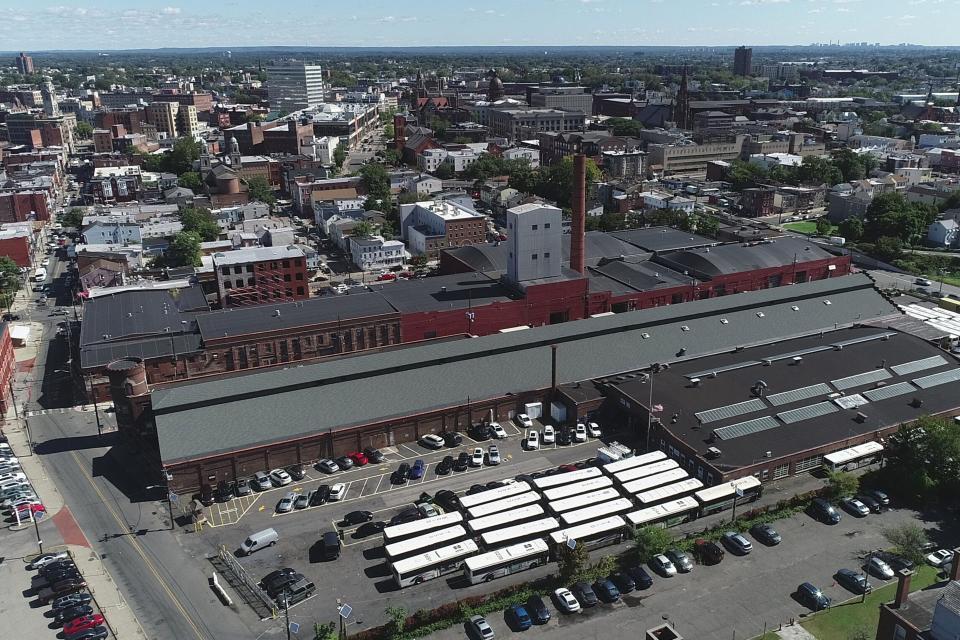
“They’re really getting creative in this completely new landscape and kind of digging into the details to make sure it’s executed correctly, which I applaud, because it’s a huge job,” Gabel-Frank said.
Doug O’Malley, executive director of Environment New Jersey and a ChargEVC coalition member who wasn’t able to attend the tour, said the public at large is hungering for more details on this program and it would be valuable for NJ Transit to offer more information at its public meetings.
More: NJ Transit gets federal grant to modernize garage to handle electric buses.
More: NJ Transit buys 750 diesel buses for $685M. Is the future all-electric?
“NJ Transit has really worked hard to make this pilot successful and also to lay the groundwork for further bus garage electrification," O'Malley said. "Sometimes it’s good to be modest, but transit should trumpet the initial success of the Camden pilot.”
Up to 200 miles on a charge
Members of NJ Transit’s staff made a 20-minute presentation to the board’s sustainability committee last week that provided some updates on the agency’s sustainability plan, resilient design guidelines, solar canopies planned for the Egg Harbor garage and the zero-emission bus transition.
About five minutes was spent talking specifically about the Camden pilot, including that NJ Transit’s seven electric buses — the eighth one is rolling out soon, agency officials said — have been running on four local routes in Camden and are getting 180 to 200 miles on a charge.
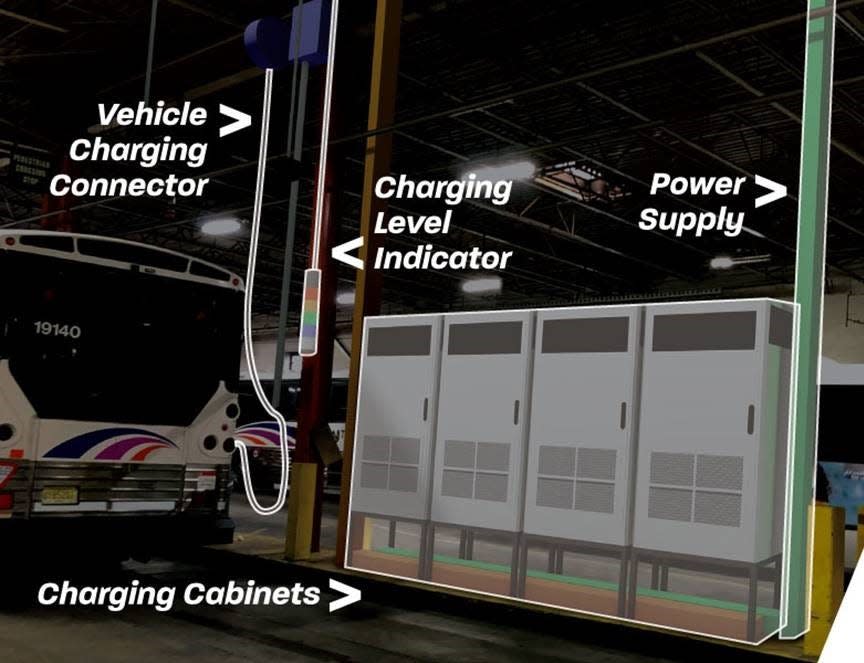
The New Flyer buses, purchased in 2021 for $9.4 million, are equipped with the biggest storage system offered, 560 kilowatt hours.
NJ Transit President and CEO Kevin Corbett noted at the meeting the tremendous strides the capital and sustainability teams have made since Gov. Phil Murphy came into office in 2018.
“If you look at where we were six years ago, this kind of effort, this kind of research, this kind of coordination … is incredibly exciting,” Corbett said.
In 2017, the year before Gov. Phil Murphy took office and hired Corbett to head NJ Transit, the agency had only $60 million worth of projects in construction, and there was no capital plan or vision for future projects, including sustainability efforts.
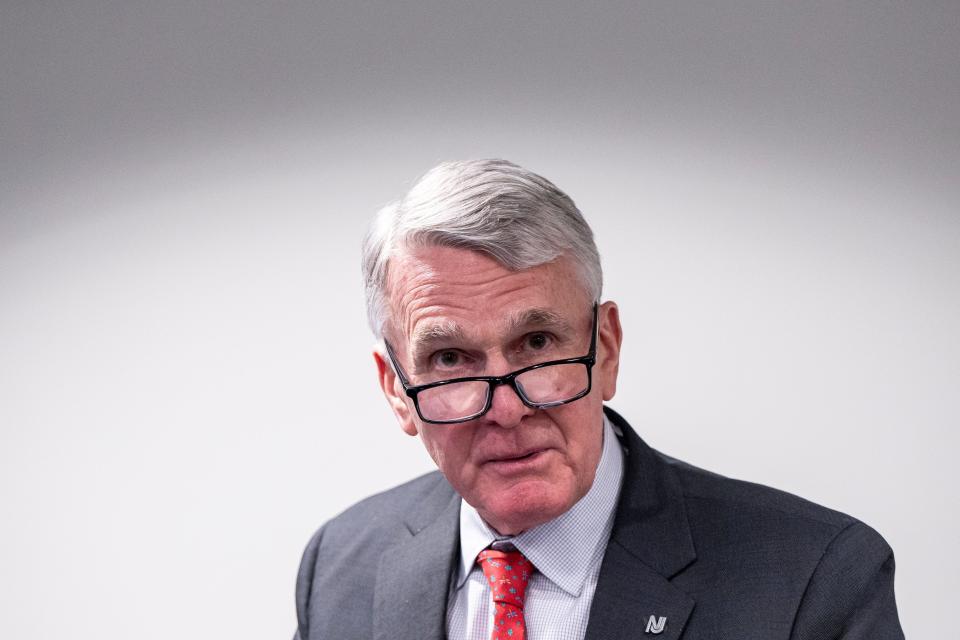
Since 2018, the agency has put nearly $6 billion of work on the street and has regularly updated its unconstrained capital plan to show projects that have received funding and those still in need of dollars to move ahead.
That strategy helped the agency secure $425 million in federal redistribution funds in September, which will help pay for electric bus projects.
Providing more information to the public will mobilize advocates who want to help the agency secure the billions of dollars it will need to realize Murphy’s vision of a clean and sustainable NJ Transit, O’Malley said.
“We will we want to see more rollouts for the pilot, and that will require additional funding through the Legislature and the governor, so it’s important that the public knows that this is going well and we need to expand it with additional funding from the Murphy administration,” O’Malley said.
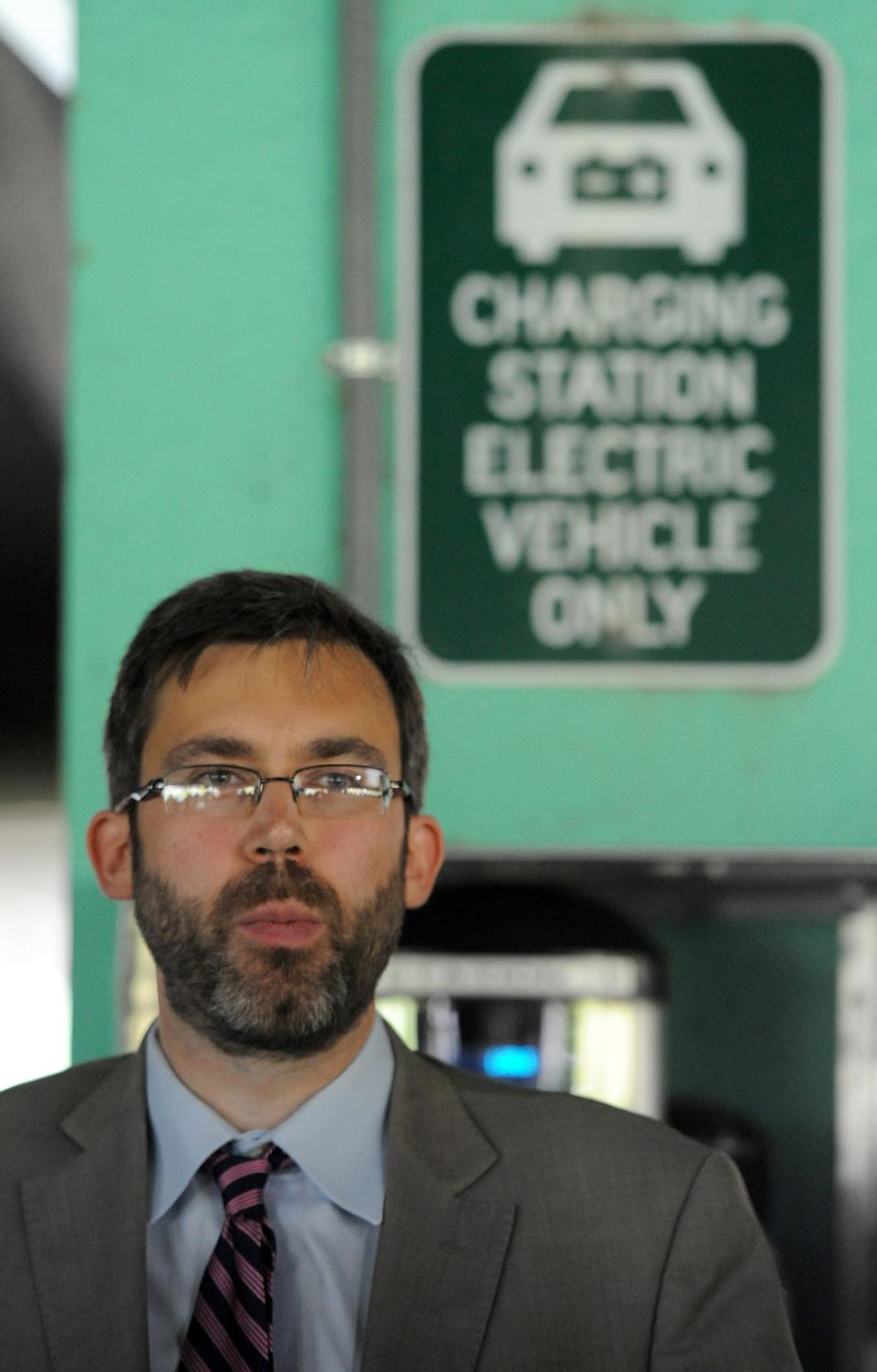
Challenging market conditions and expensive transition costs have already made it difficult for NJ Transit to meet the governor’s climate goals, which include a requirement that 10% of new bus purchases be zero-emission by December 2024. By 2032, 100% of the agency’s new bus purchases must be zero-emission.
Supply chain issues and inflation hit electric bus industry
Signs of those challenges were evident with the 2022 launch of the Camden pilot program, which was delayed four times, in part because the four potential vendors seeking to manufacture NJ Transit’s first eight electric buses requested additional time to develop their proposals.
In the two years since that procurement, the electric bus market in North America has flailed as companies report increased costs due to supply chain issues and inflation, which have made these business endeavors less profitable, or not profitable at all.
The lack of profitability was cited as one reason Proterra, the largest electric bus manufacturer in the U.S., filed for Chapter 11 bankruptcy in August. Though the company found buyers earlier this month to purchase different business lines associated with its manufacturing of batteries and vehicles, the bankruptcy filing sent a message that the industry is in a difficult position.
Even the diesel bus market is challenged. NJ Transit’s board approved the purchase of 750 diesel buses this month for $685 million plus a 10% contingency, which agency officials said was increased from past 5% contingencies because of potential “inflation or supply chain disruptions.”
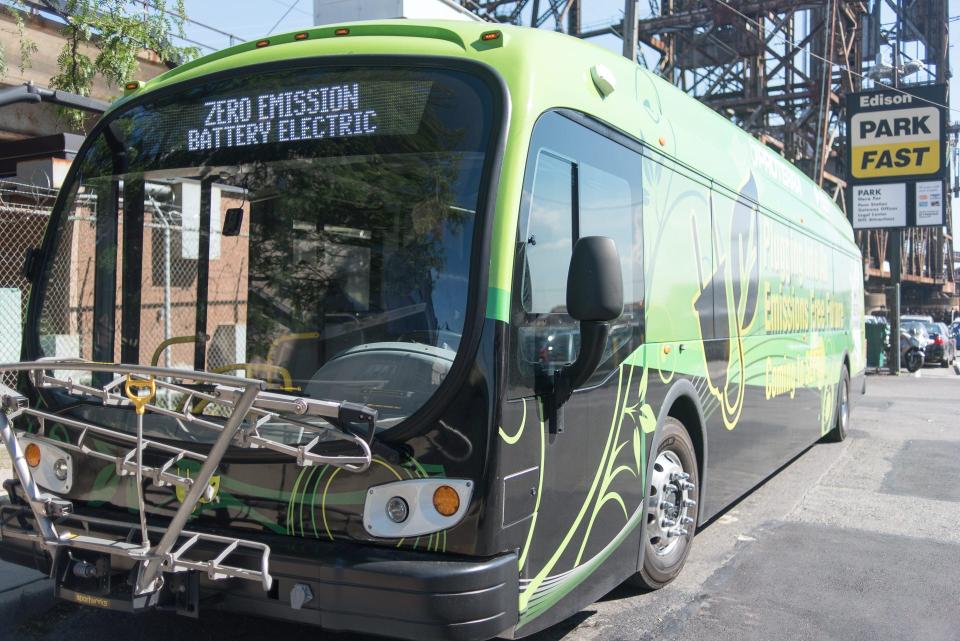
New Flyer was the only bidder, NJ Transit’s procurement calendar showed. MCI was the only bidder on a request for bids for the purchase of 172 cruiser buses in 2021.
Lack of competition inflates new bus prices
The lack of competition in the entire bus market could be among the contributors to the rising costs to purchase new vehicles, which could strain NJ Transit’s already-limited capital funds available for those purchases and the expensive transition to zero-emission buses.
“There’s a shortage of bus manufacturers in the U.S.,” Corbett said this month, which is among the reasons the procurement of 750 diesel buses included an option to purchase another 1,300 diesel buses down the line, even as the agency faces a mandate to move to zero-emission.
“We really want to make sure we lock up all the spots on the production line, because there’s really going to be a bigger and bigger backlog with the bus manufacturers,” he said.
NJ Transit has not yet put out a request for proposals to buy four battery buses for the Newark electric bus pilot program. The agency received a $5.15 million grant for that procurement in 2021, but the program is not expected to begin until fall 2026. Corbett said he hopes more competition will be created in the market in the coming years by attracting more European bus makers to set up facilities in the U.S.
Over $1 billion to modernize bus garages
While private companies changing their buses or other medium- and heavy-duty fleet vehicles to electric can turn to companies abroad, NJ Transit and other public agencies must purchase from companies compliant with the “Buy America” act in order to use federal grants.
NJ Transit is heavily relying on federal grants to switch its bus fleet and modernize and construct garages to accommodate electric buses and their charging infrastructure, with some $203 million in federal grants flowing to the agency since 2021 for those projects.
But it will need billions of dollars to make systemwide changes, Corbett said.
The agency estimates it will need $1.3 billion to modernize just five of its 16 bus garages (Hilton, Wayne, Greenville, Hamilton and Newton) for zero-emission fleets. The cost to build a new Northern Bus Garage in Ridgefield Park is estimated at $1.5 billion.
“There are a lot of really exciting challenges that are going to take years, but to have the team like we have here really positions us well,” Corbett said, adding that NJ Transit’s team is trying to institute “best practices and position ourselves as well as possible for funding.”
This article originally appeared on NorthJersey.com: NJ Transit faces huge hurdles to expand electric bus program

